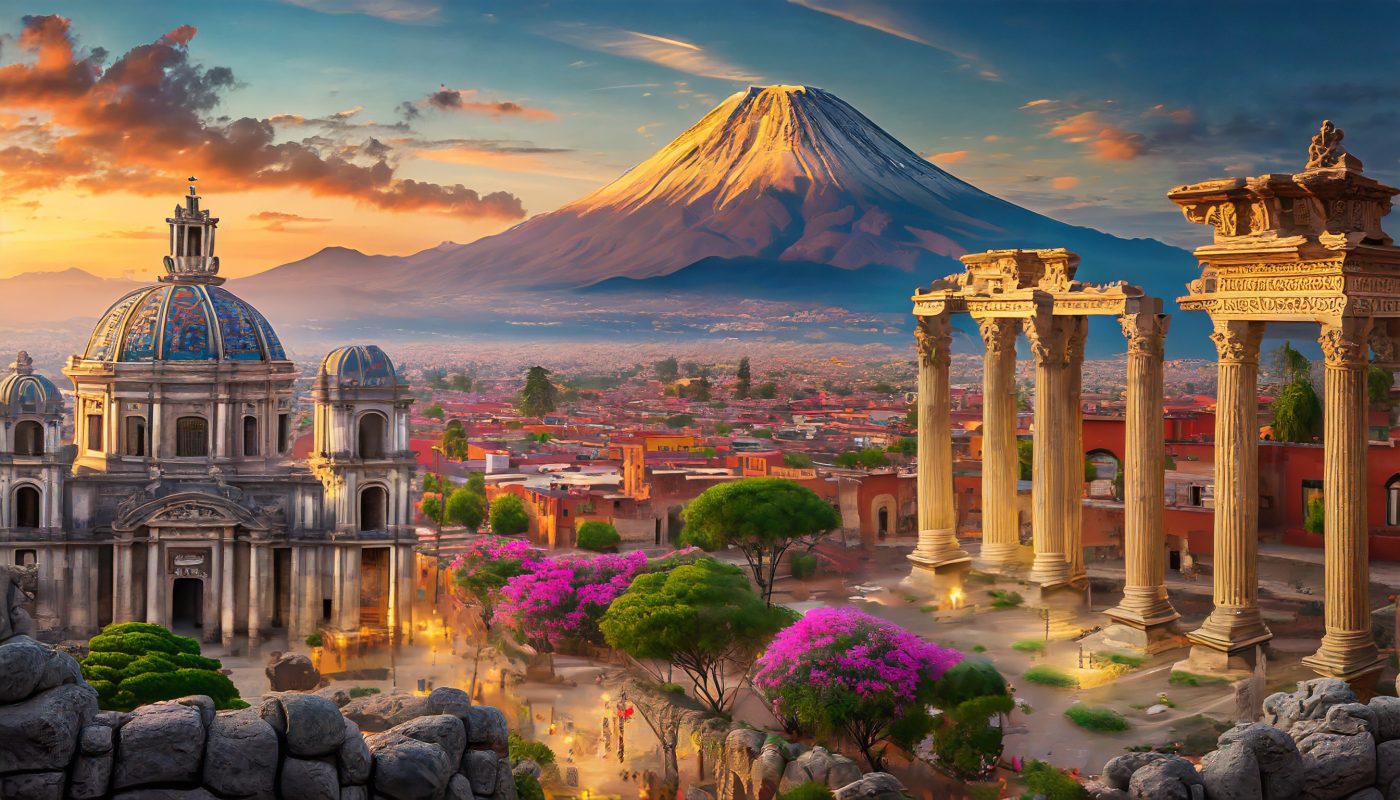Our History ist full of moments that have shaped the course of civilizations. One of these moments was the discovery of America by Christopher Columbus and his team in the late 15th century. But imagine if the mighty Roman Empire had Discovered America first? While such a scenario is pure speculation, it offers an exciting look into this alternative history. (This speculation includes the Northern and Southern American Continents).
If the Ancient Romans would have had set foot on American land, they would have encountered many civilizations such as the famous Mayans or other lesser-known civilizations like the Hopewell culture, Ancestral Puebloans (Anasazi), Mississippian Culture, Moche Civilization, and more. Some of them were more some of them lesser developed.
Ancient Romans arriving in America
If the Romans had discovered America, it would have been a monumental achievement, even for an empire known for its great conquests. While the Romans’ maritime capabilities were advanced for their time, they were mainly focused on the Mediterranean. A transatlantic voyage would have required significant advancements in the Romans naval technology and navigational skills. But given the Romans’ talent for engineering and innovation, it’s possible that they could have made the voyage.
Upon their arrival, the Romans would have come across a variety of indigenous civilizations, from the advanced societies of the Mayans in the south to the diverse culture of North America. These encounters would likely have been a mix of trade, diplomacy, and, unfortunately, conflict. The Romans might have had an initial advantage with their superior weaponry and organized military tactics. But the vastness of the American landscape, combined with the unfamiliarity of its terrains and diseases, would have presented them with major challenges.
However…
Ancient Romans were primarily driven by trade, conquest, and the obtainment of resources. Their known and widely possessed territories provided enough material and opportunities for these pursuits. Historians argue that without concrete knowledge of the huge wealth and resources in the American Continents, the Romans might not have had the motivation to sail into the unknown Atlantic.
Trade between Romans and American Cultures
One of the most exciting aspects of this hypothetical scenario of the ancient Roman Empire discovering America, is the potential for cultural exchange. The Romans were known for assimilating parts of the cultures they conquered, resulting in a rich pot of Greco-Roman civilization. America, with its diverse cultures, from developed Aztects culture to native Americans’ skillful hunting and craftsmanship, would have added a whole new exciting dimension to the Roman world.
However, this exchange might not have been entirely positive. Just as in our timeline, where European diseases demolished indigenous populations, if the Romans would have discovered America, they as well could have unconsciously introduced Old World diseases (meaning malaria, diarrhoea, yellow-fever, influenza,…), with catastrophic consequences. Furthermore, the Romans’ hierarchical society and practice of slavery might have led to the domination and exploitation of indigenous peoples.

Economic Boom or Bust?
In our timeline, the discovery of America brought Europe immense wealth, from gold and silver to new crops like potatoes and tomatoes. If the Romans would have been the first to set foot on American land, these resources would have been a major boost to their economy. The huge lands would have provided opportunities for new Roman colonies, trade routes, and agricultural lands.
The Romans were skilled traders. If governing the entire continent proved to be too difficult, they may have created important ports or trading centers. Serving as bridges between the native populations and the Roman world, these cities would have been centers of Roman architecture, culture, and trade. And these spots may have developed into important cities over time, which would combine the different cultures of the Roman and native people.
Politics and Governance
How would politics have evolved like, if the Roman Empire had discovered America first? Given the challenges of direct governance, the Romans might have went for a system of client kingdoms or alliances with local chieftains, similar to their relationships with certain areas in Europe. This would have enable indigenous cultures to retain a degree of autonomy and influence. Modern-day America, in this scenario, might have seen a stronger preservation of indigenous languages, customs, and traditions.
The Roman legal system, with its emphasis on written laws and justice, might be introduced. This could lead to codified laws that integrate Roman principles with indigenous customs. However, tensions might arise, especially if Roman laws conflict with indigenous practices, leading to potential social and political chaos.
Cultural Fusion of the Roman Empire and America
How would America look like today, if Roman culture had it’s influence on it? There is little question that the American environment would have been impacted by the Romans’ mastery of architecture and engineering. Their architecture would have influenced city planning and infrastructure. Mayas are known for their geometrically designed temples and pyramids. Aqueducts might share landscapes with these architectural masterpieces and amphitheaters could become central entertainment hubs. However, the Romans would also adapt to local materials and climates, which would lead to a fusion of styles with indigenous architectural traditions. Imagine American cities and lands covered with grand coliseums, aqueducts, and villas. Possibly, Mayan architecture and fashion could have spread through the Roman Empire influencing the course of Design and Architecture in modern day Europe and Eastern Europe.

Roman culinary traditions, such as wine-making and olive would influence indigenous diets. Rituals, festivals, and ceremonies might integrate elements from both cultures. Latin might have been the dominant language in the trade hubs and cities, but in rural areas, a blend of Latin and indigenous languages could have emerged. Over centuries, these might evolve into its own languages, much like how Latin evolved into the Romance languages in Europe.
However, even though these civilizations would have benefitted, from this cultural exchange, such as acquiring ancient Roman engineering skills; the spread of Roman culture, religion, and governance might have overshadowed and potentially erased the richness of indigenous traditions, beliefs, and histories. The loss of these unique cultures would have been a tragic result of Roman expansion.
Conclusion
‘What if the Roman Empire had Discovered America’ is a grabbing ”What If” szenario that makes us reimagine the direction of history. Such a discovery would have reshaped the culture, economics, and politics of both the Old and New Worlds in a major way! There is no denying the interesting possibilities of development, innovation, and blending of cultures, but there are also actual risks of exploitation, conflict, and cultural eroding.
As with any hypothetical scenario, it’s important to approach it with a balanced perspective and understanding the complex details of such a major shift in history. While we’ll never know for sure how Roman America would have evolved, it comes with an insightful reminder of the deep impact of exploration, discovery, and cultural exchange on human history.
FAQ
1. Would a Roman America last?
Just as the Roman Empire eventually fell in Europe, its control on the American continent would tikely have fell as well. It’s possible that new empires with a mix of Roman and native authority emerged in those regions. These empires might have served as the model for later states.
2. Could the Roman Empire have successfully expanded into the Americas?
The idea of Roman conquest in the Americas overlooks the sophisticated military capabilities and rich cultures of indigenous civilizations like the Mayas. Historians suggest that any encounter between Romans and these civilizations would have been a complex exchange or conflict between two formidable powers. Moreover, governing such vast territories would have posed significant logistical challenges for the already stretched Roman Empire, potentially risking internal strife and economic strain.
Discover more of → ”What if” ←



